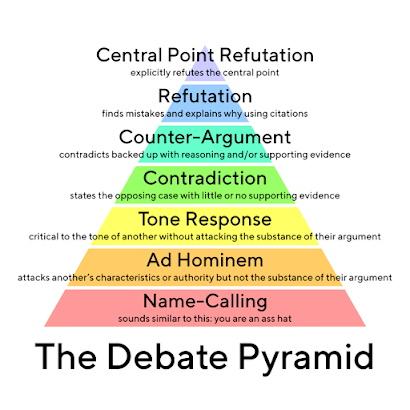I wrote this in 2018, but given the extraordinary growth of white nationalism in American society, it's worth considering again.
Star Trek's ultimate bad guys, the Borg, are a metaphor. As we see them from today’s perspective, they are placeholders for
white nationalists and for
invasions of our privacy by technology.
The Star Trek Enterprise episode Regeneration was on the other evening, and it made me think again about the Borg, their original role in Star Trek storytelling, and how they speak to us today.
From its beginnings in the 1960s, Star Trek has told stories of computers and technology overshadowing human freedoms.
- The Ultimate Computer made the captain and crew unnecessary
- Several aliens, like Trelane and Apollo, used hidden technology to amplify their god-like powers
- Landru and Vaal were computers that controlled entire planetary societies
- Androids imprisoned Harry Mudd
- Nomad and Vyger just wanted to kill everybody
These stories were clearly rooted in the concerns that were common in the 1960s that computers were turning us into numbers and taking away our individuality. It was a time when computer databases were first used to automate and track the interactions of people, and errors were often made due to lack of sophistication.
The Original Series plots served as metaphors for these societal concerns, generally showing the defeat of the computers/technology through the cleverness of the captain and crew, including confusing the computer with logic or illogic, getting it to calculate
π to the last digit, etc.
These social anxieties about computers and technology have never completely gone away, and we see them resurgent today in the news about hacking and tracking and deceiving people via their social media and smartphones.
When The Next Generation producers were looking for a nemesis, they reportedly first considered a society of space-going insects, but settled on cyborgs, i.e. the Borg.
The Borg drones are humanoids that have extensive technology implants and replacements of body parts, but the technology suppresses their individuality. They are the ultimate of a peer-to-peer network, with no central control (the Borg Queen is simply a mouthpiece for the collective) and no individuality, hardly even individual consciousness.
But Borg is not just a cybernetic society. It aggressively assimilates species after species, claiming to want to improve their quality of life, which requires taking away their individuality. They are the ultimate of conformity to a black-and-white values system, with "you must comply" as their mantra.
The drive for conformity was powerful in 1950s America. In the 1960s, the pendulum swung the other way, at least among young people, and "do your own thing" was the standard wisdom, along with great distrust of "the establishment", prompting the "don't trust anyone over 30" rule.
These twin youth culture rules had largely faded away by the time the Borg were introduced in The Next Generation. Their original proponents were in or near their 40s, were settled down with children, and most had establishment jobs. But in Star Trek's positive multi-cultural view of a future embracing technology, it is not surprising that the great antihero (the Borg) misuses technology in a mono-cultural and deeply utilitarian society that has no respect for those who are different, including those who embrace individuality.
Based on Seven of Nine and other drones separated from the collective, Borg drones find great comfort in never being alone, in being immersed in the cacophony of the thoughts of billions of Borg.
I can't help note that many people today seem to be unable to stand being disconnected from their smartphone "friends" and are endlessly pressured to conform by forwarding memes, playing "games", and being guilt-tripped by statements like "only 1 in 147 people will share this, but do it to prove that you are my friend."
But the Borg are not just representative of today’s marketing in which loss of privacy and sharing of data leads to improved quality of life. They are the powerful majority, suppressing the weaker minority.
The great underlying message of all Star Trek is multi-culturalism. The Borg are not just compelling bad guys. They are the antithesis of a multicultural society. In today’s terms, they are the White Nationalists, who are really interested only in power.
The dominant white culture, they believe, is polluted by the differentness (individuality) of the immigrants, just as the Borg cannot abide by individuality, forcing individuals to perfectly integrate into their cyborg society. I wish we could simply order THEM to calculate
π to the last digit.
Rick Berman (executive producer of four Star Trek series) said recently:
“If you believe in the values of Star Trek, you need to vote in November, and to get everyone you can to vote. Trek and apathy don’t fit.”
I would go a step further and say that if you believe in the values of Star Trek, you have to take a stand against those who oppress minorities.
Don’t engage in violence, but vote, call out ethical and moral failures and don’t assume it is going to happen without getting yourself involved.
(Image from: https://upload.wikimedia.org/wikipedia/commons/6/6f/Borg_dockingstation.jpg)
 Update: Although this post was written a while back, people are still finding it and reading it. I have updated it here and there to reflect the post-Trump realities.
Update: Although this post was written a while back, people are still finding it and reading it. I have updated it here and there to reflect the post-Trump realities.
















